About the project
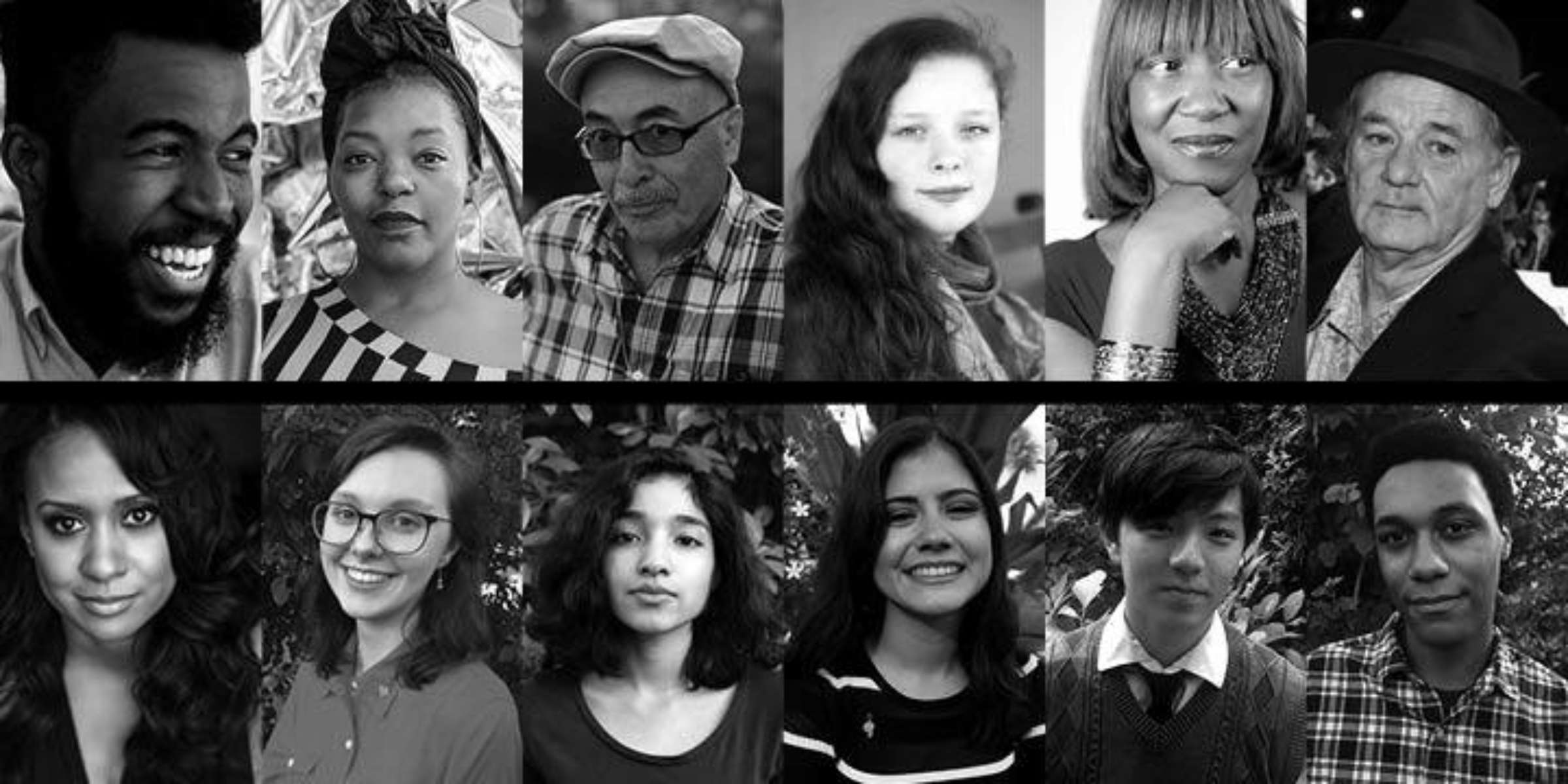
Readings and a dialogue among distinguished poets and young poets of tomorrow— a chorus of diverse voices exploring the transformative power of words.
Presented by the Alliance for Young Artists & Writers and Theater of War Productions.
Featuring:
Dr. Joshua Bennett, Facilitator
Mahogany L. Browne
Juan Felipe Herrera, US Poet Laureate 2015–2017
Molly McCully Brown
Patricia Smith
and special guests: Tracie Thoms and Bill Murray
The Class of 2020 National Student Poets: Maddie Dietz, Manasi Garg, Isabella Ramirez, Ethan Wang, and Anthony John Wiles, Jr. and alumni of the National Student Poets Program.
Project Highlights
The World on Fire: Ecology, Poetry, and Disability Justice
on Zoom / 2021
An evening of readings and a dialogue among distinguished poets and young poets of tomorrow— a chorus of diverse voices exploring the transformative power of words at the intersection of disability and climate justice.
Presented by Theater of War Productions, Alliance for Young Artists & Writers, Office of Interdisciplinary Programs and Outreach at the Burton Blatt Institute, Nine Mile Art Corp, Wordgathering: A Journal of Disability Poetry and Literature, and The International Writing Program.
Supported by the Academy of American Poets with funds from The Andrew W. Mellon Foundation.
Co-facilitated by Bryan Doerries and Diane R. Wiener.
Featuring poems and performances by: Ona Gritz, Stephen Kuusisto, Ekiwah Adler-Belendez, Taylor Brorby, Camisha Jones, Maddy Dietz (Class of 2020 National Student Poet), Christian Butterfield (Class of 2019 National Student Poet), Alondra Uribe (Class of 2019 National Student Poet), David James "DJ" Savarese, and Christopher Costello.
Those Winter Sundays
on Zoom / 2021
This special collaboration between Theater of War Productions and the PBS series Poetry in America presented readings by the actors Bill Murray (Lost in Translation) and Moses Ingram (The Queen’s Gambit) of Robert Hayden's 1960s sonnet “Those Winter Sundays,” as a catalyst for a powerful, guided discussion about the everyday struggle of surviving, thriving, and connecting during this incredibly difficult winter. The event also featured a recorded reading of Hayden's poem by President Joe Biden, helping frame crucial dialogue between diverse communities about economic hardship, family dynamics, parenting, domestic violence, racism, and American identity during this divided and fractured time. Using the poem to build bridges and create a vocabulary for talking about the challenges before us and within our homes, Those Winter Sundays aims to foster compassion, understanding, healing, and resilience.
Facilitated by Bryan Doerries and Elisa New.
Featuring the following panelists:
Karen Bailey, Teacher, Flint, MI
Anthony Almojera, EMS Officer FDNY
Manasi Garg, National Student Poet, Saratoga, CA
Al-Tabar Hudgins, RISE Project Uptown Coordinator, NYC
Nathalie Arzu, RISE Project Uptown Program Manger
Watch the full Event: Poetry for the Pandemic
On Zoom / 2020
Poetry For the Pandemic: November 12, 2020
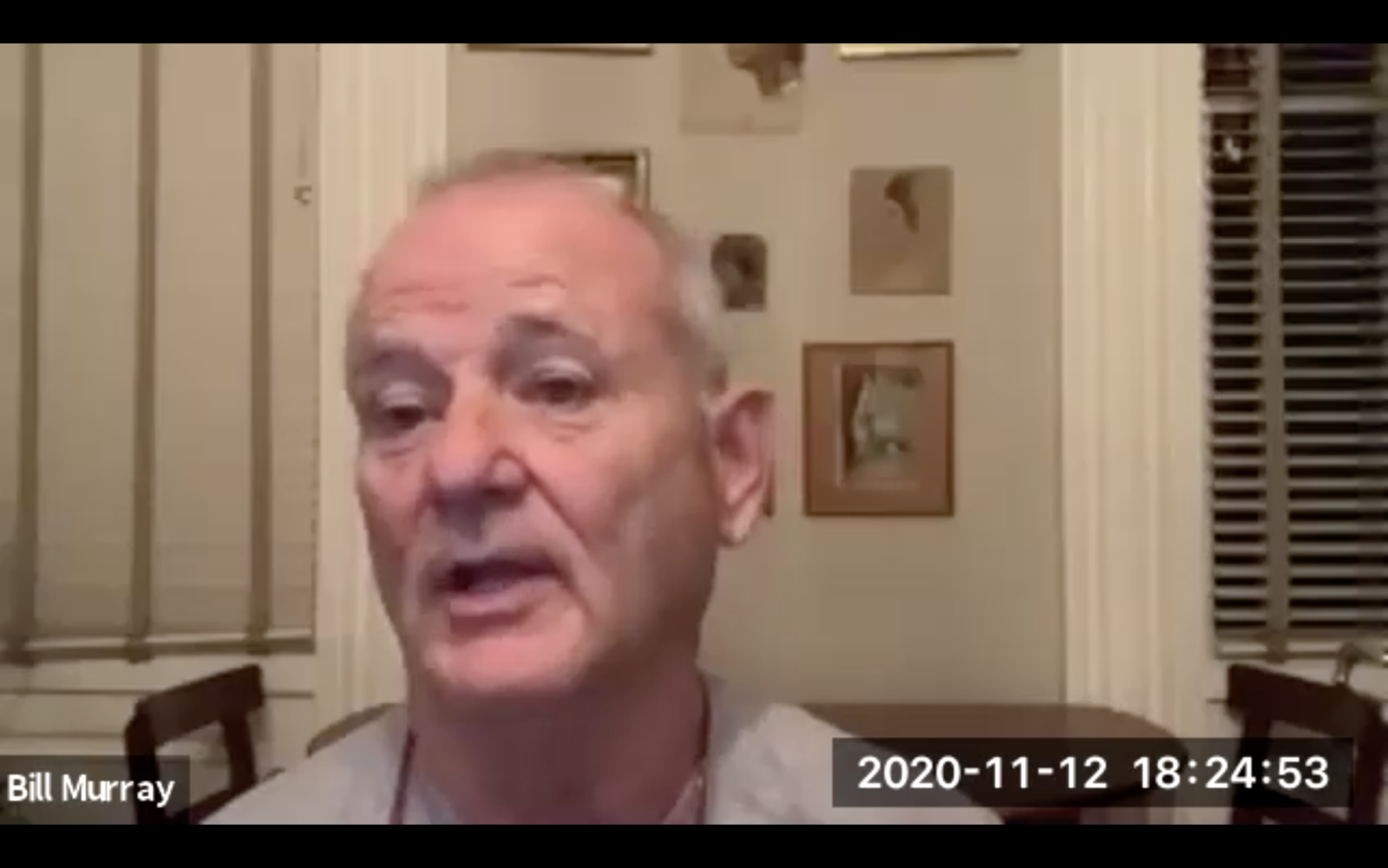
Bill Murray
On Zoom / 2020
Bill Murray reads:
When Poetry Visits: Ars Poetica by Laura Rothenberg
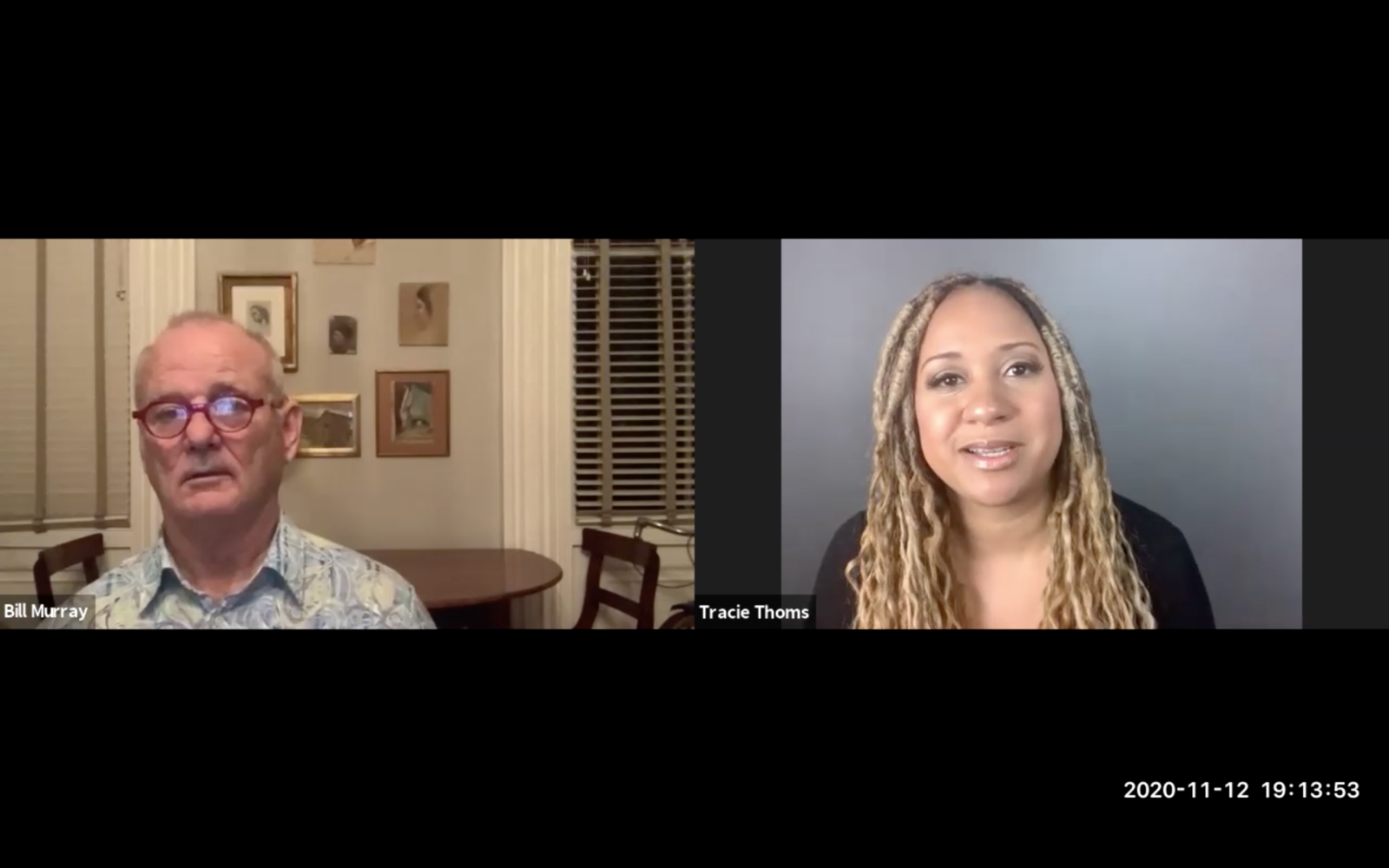
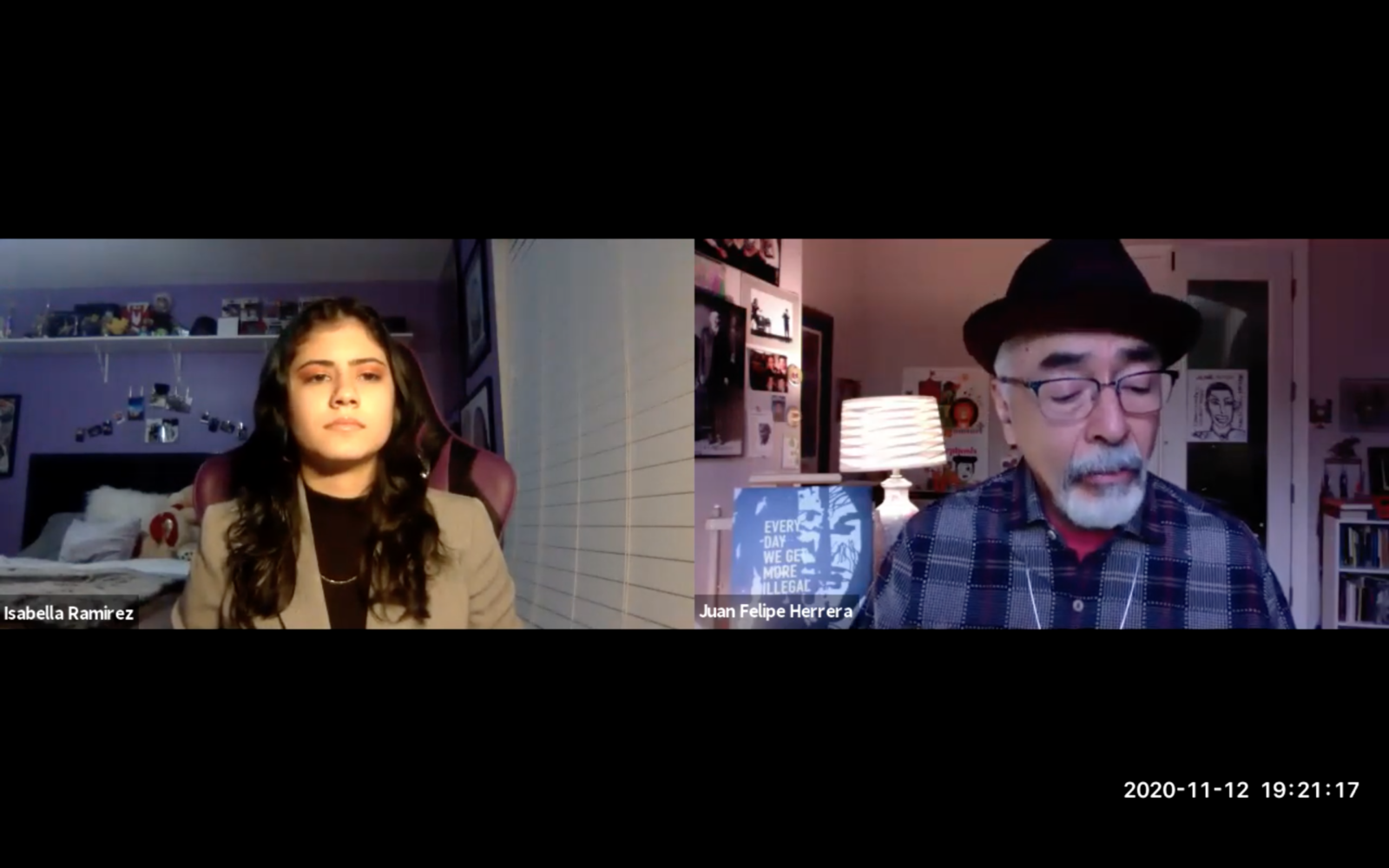
Poetry for the Pandemic’ Showcases Timeless Verse, Bill Murray
On Zoom / 2020
Isabella Ramirez and Juan Felipe Herrera, US Poet Laureate 2015–2017 Read the article in The Emory Wheel.
Isabella Ramirez reads:
Let me Tell You What a Poem Brings by Juan Felipe Herrera for Charles Fishman
&
Exiles by Juan Felipe Herrera
Juan Felipe Herrera reads:
Mama by Isabella Ramirez
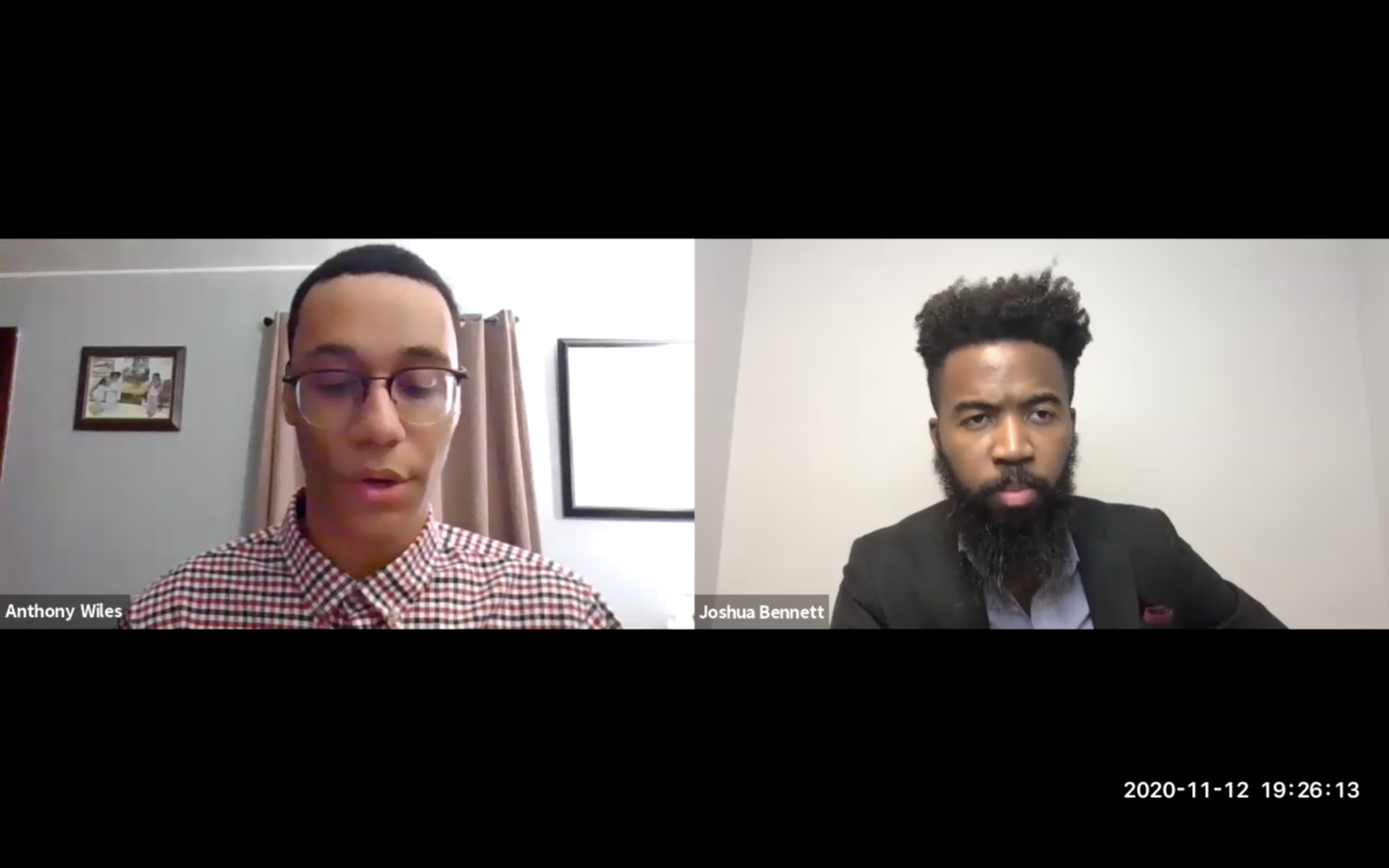
Anthony Wiles and Joshua Bennet
On Zoom / 2020
Anthony Wiles and Joshua Bennet read each other's poems.
Joshua Bennett reads:
we went Home to Crystal by Anthony Wiles
Anthony John Wiles, Jr reads:
Mike Brown is a Type of Christ by Joshua Bennett
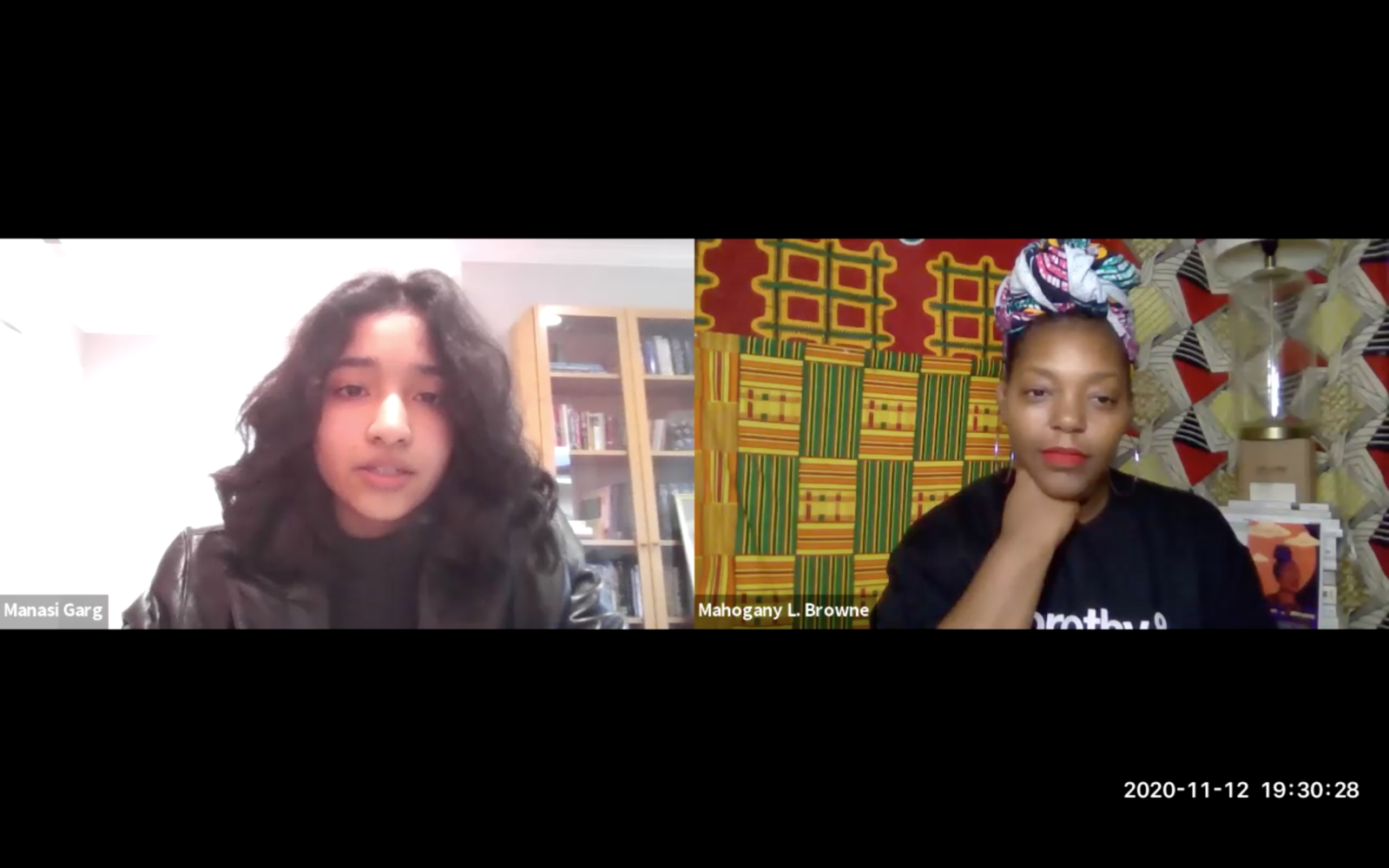
Manasi Garg and Mahogany L. Browne
On Zoom / 2020
Manasi Garg and Mahogany L. Browne read each other's poems.
Manasi Garg reads:
litany by Mahogany L. Browne
Mahogany L. Browne reads:
Conversations at the Kitchen Table by Manasi Garg
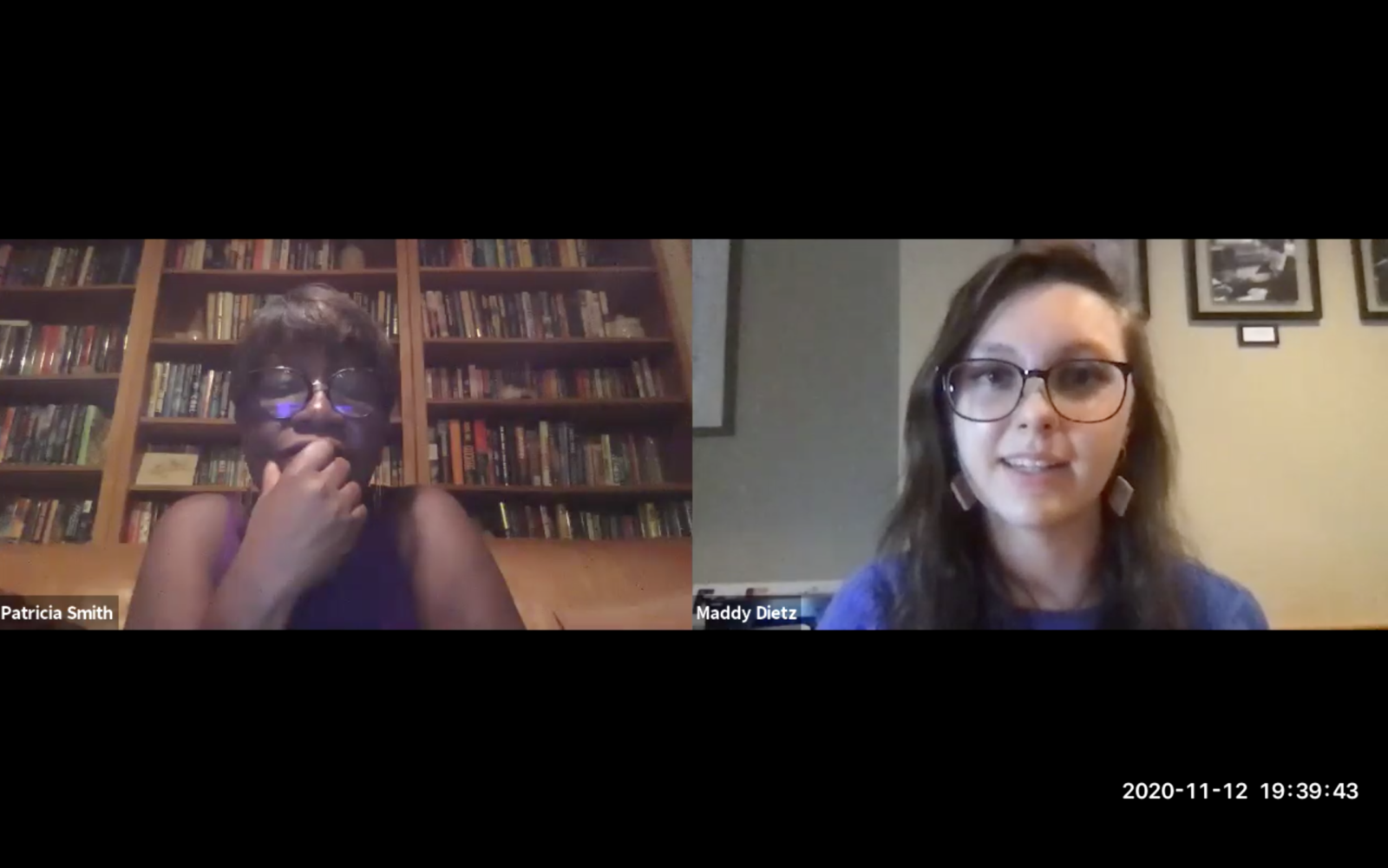
Patricia Smith and Maddy Dietz
On Zoom / 2020
Patricia Smith and Maddy Dietz read each other's poems.
Patricia Smith reads:
BRACKEN by Madelyn Dietz
Madelyn Dietz reads:
10-Year-Old Shot Three Times, but She’s Fine by Patricia Smith
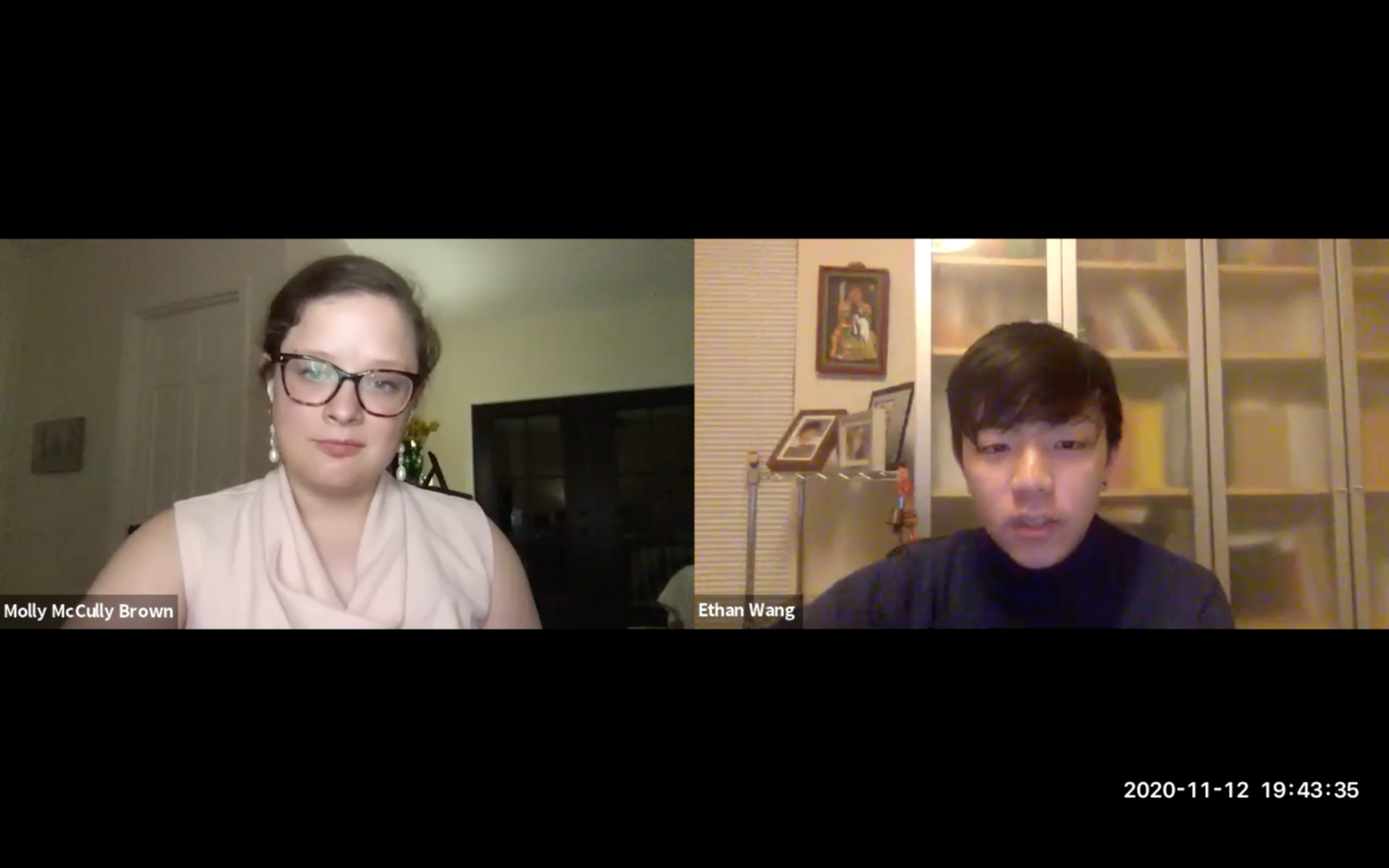
Molly McCully Brown and Ethan Wang
On Zoom / 2020
Molly McCully Brown and Ethan Wang read each other's poems.
Ethan Wang reads:
What There is To Give by Molly McCully Brown
Molly McCully Brown reads:
walk through the suburbs by Ethan Wang
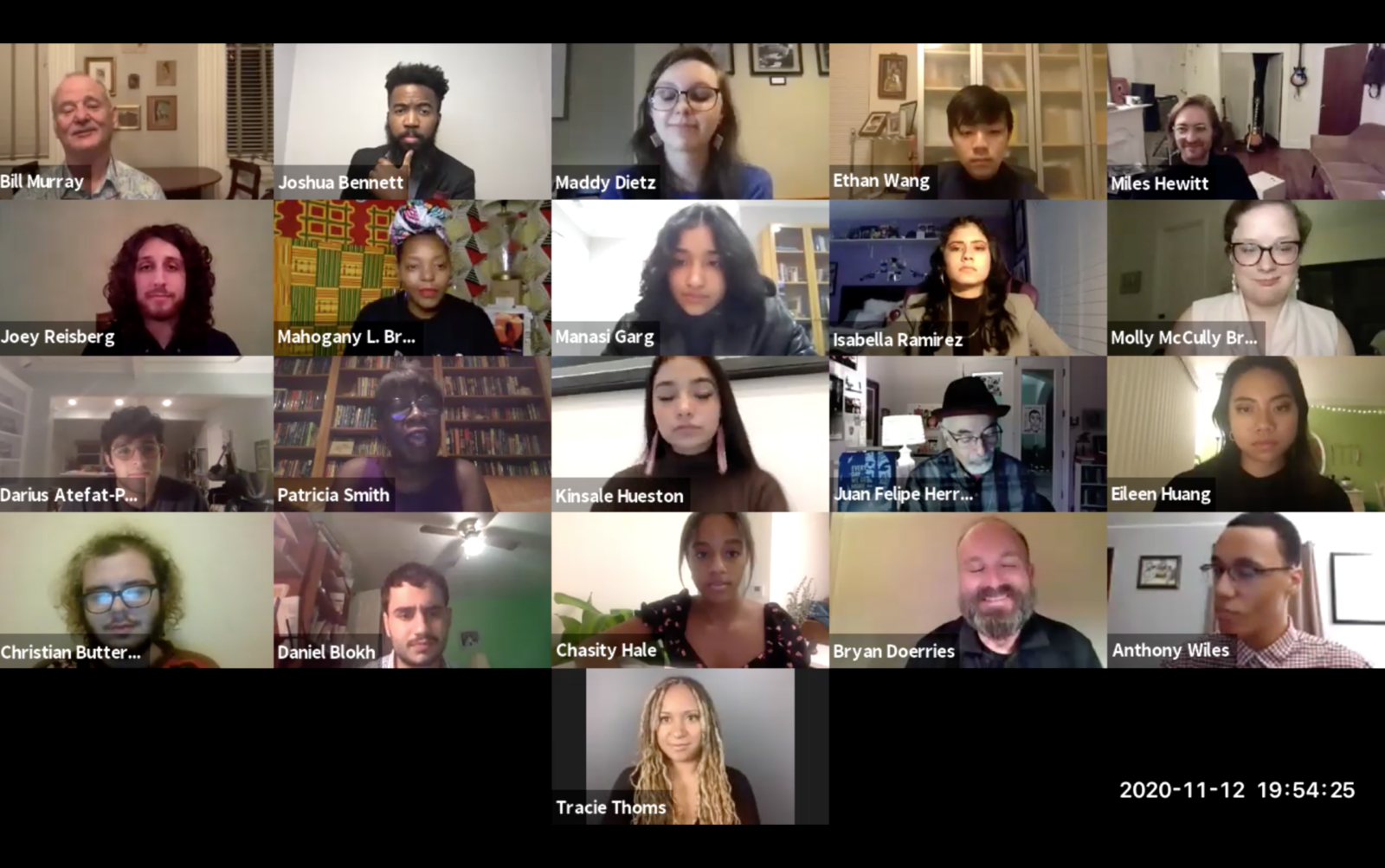
Poetry for the Pandemic: November 12th
On Zoom / 2020
An intergenerational discussion about poetry during the pandemic.
Explore Projects
-
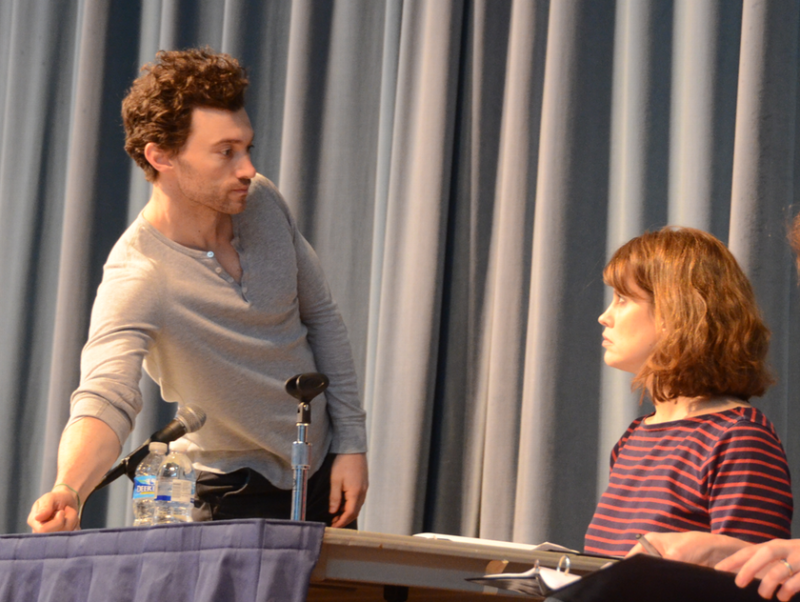 Domestic ViolenceDomestic Violence Project
Domestic ViolenceDomestic Violence ProjectAddressing the impact of domestic violence on individuals, families, and communities, the Domestic Violence Project premiered in Maine in April 2013 and will be touring all five boroughs of New York City under the current PAIR residency.
-
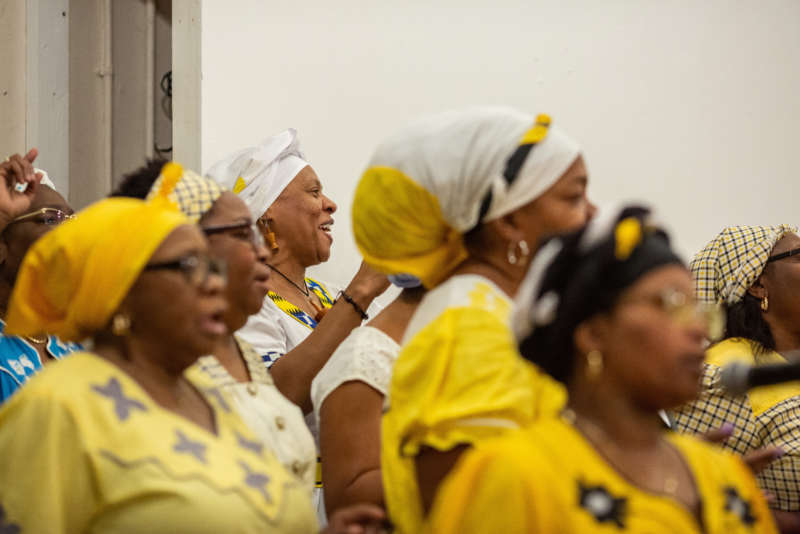 Refugees & ImmigrationThe Suppliants Project
Refugees & ImmigrationThe Suppliants ProjectThe Suppliants Project tells the timeless story of fifty female refugees seeking asylum at a border from forced marriage and domestic violence. The play not only depicts the struggle of these women to cross into safety, but also the internal struggle within the city that ultimately receives them. Using a 2,500-year-old tragedy by Aeschylus as a catalyst for powerful gatherings and crucial conversations, The Suppliants Project engages diverse audiences in humanizing, constructive dialogue about the challenges and impact of war, migration, and seeking asylum.
-
Caregiving & DeathThe Nurse Antigone
A groundbreaking project by and for nurses, The Nurse Antigone presents dramatic readings of Sophocles’ Antigone on Zoom—featuring professional actors and a chorus of frontline nurses—to help frame powerful, guided discussions about the unique challenges faced by nurses before, during, and after the COVID-19 pandemic.










